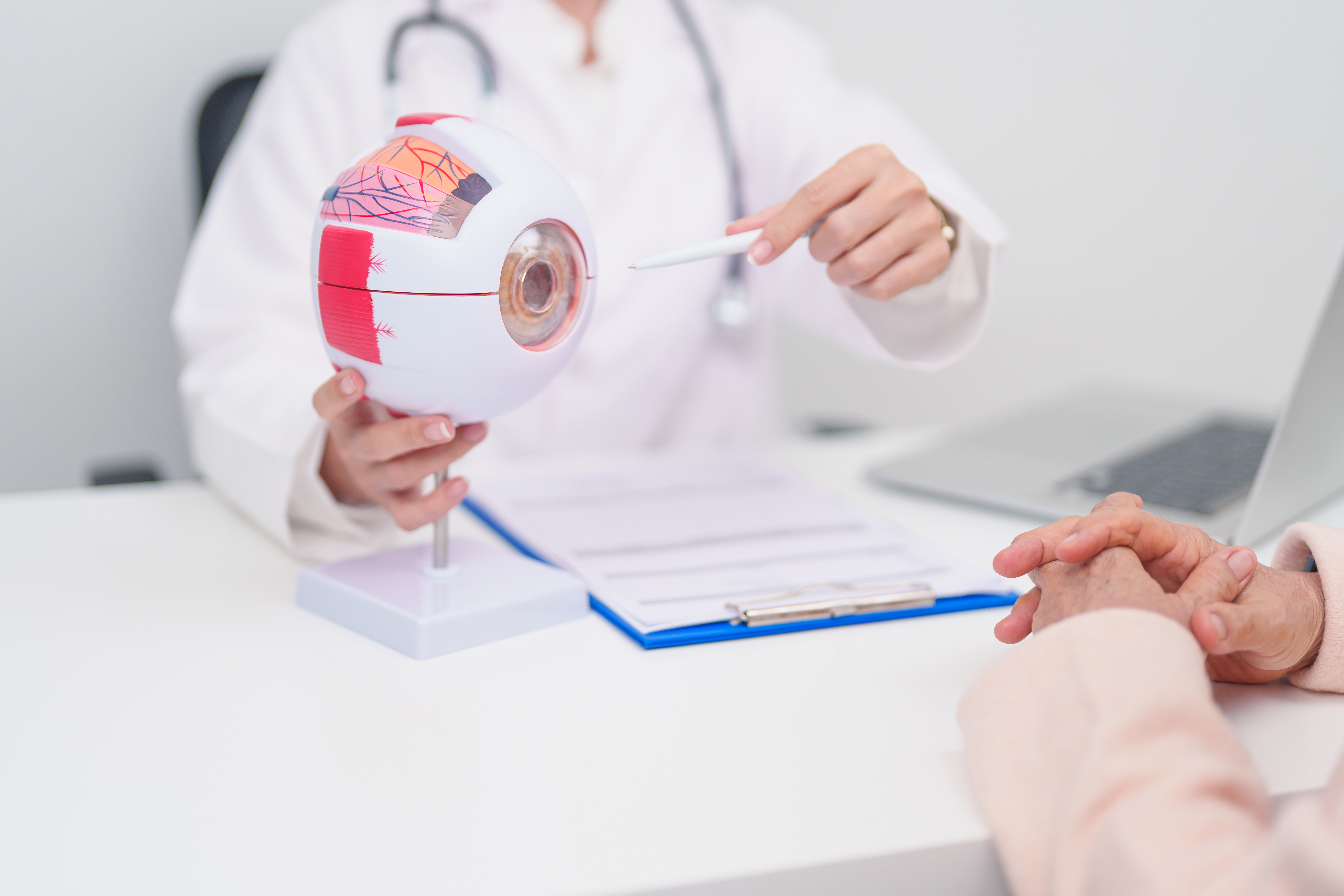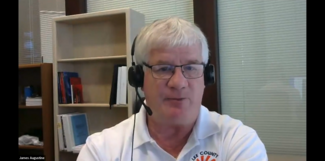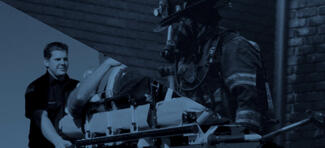After EMS: Illegally Blind
This article is part of an ongoing series from Mike Rubin. In this series, he’ll reflect on his career and share practical retirement advice for emergency medical personnel. Catch up on articles you missed.
In 1990, shortly after my 37th birthday and two years before I knew anything about EMS, I decided to wear contact lenses while playing ice hockey. My optometrist insisted on a thorough eye exam first. I’m grateful for that; he discovered I have glaucoma, the world’s second leading cause of blindness.
Why feature an eye disease rarely treated by EMS in a nonclinical column about retirement? Because glaucoma isn’t just a danger to your patients; it can complicate life for you, too, especially if you’re an undiagnosed victim.
 I’m talking about primary open-angle glaucoma, the most common kind—an insidious, incurable condition that can exist for years before becoming symptomatic and harder to manage. Seniors are most affected, but all ages are vulnerable. Other high-risk groups are families with glaucoma history, African Americans, and anyone with diabetes or hypertension.
I’m talking about primary open-angle glaucoma, the most common kind—an insidious, incurable condition that can exist for years before becoming symptomatic and harder to manage. Seniors are most affected, but all ages are vulnerable. Other high-risk groups are families with glaucoma history, African Americans, and anyone with diabetes or hypertension.
Over 1% of the U.S. population has glaucoma. Half of them don’t know it. Find out if you’re in that group by asking an optometrist or ophthalmologist to check your eyes. The noninvasive, painless exam should include intraocular pressure (IOP) measurement and visualization of your optic nerves. If there are signs of glaucoma, a visual field assessment will show how much eyesight you’ve already lost.
Patient perspective: Evaluating IOP is surprisingly subjective. I’ve gotten different results—enough to matter—from as many as three clinicians within an hour. Visual fields are also open to interpretation. Any tests showing radical changes should be repeated.
Glaucoma typically impedes drainage of fluid from inside the eye, leading to increased IOP, damage to the optic nerve, and gradual loss of peripheral vision. It’s unclear whether the direct cause of nerve impairment is elevated pressure or poor perfusion. Central vision usually is preserved until the endpoint of the disease.
Patient perspective: I lost about a third of the peripheral vision in my right eye before I noticed. It took me 30 years to get there because my glaucoma was caught early and medicated effectively. My ophthalmologist even joked about whether I’d die or go blind first. We’re both lucky he became a doctor instead of a comedian.
Treating glaucoma usually starts with eye drops that either reduce production of intraocular fluid or increase drainage. Some of those medications—alpha agonists, beta blockers, cholinergics—should be familiar to EMS providers. There are also surgical options, including minimally invasive laser therapy.
Patient perspective: If you have open-angle glaucoma, try meds before considering surgery. Most modern glaucoma drugs are inexpensive and much easier to tolerate than someone cutting into your eyes.
Globally, over 100 million people are thought to have glaucoma. Thanks to early detection and modern care, only 5% of sufferers in developed countries are legally blind.
Such an odd term, legal blindness. I don’t qualify because my acuity is better than 20/200 and my visual field is greater than 20 degrees. I may not notice our stealthy tomcat approaching from the right, but I can still see what I’m looking at.
If you want to up the odds that your eyes work as long as the rest of you, get your optic nerves and IOPs checked regularly. Discovering your own glaucoma means you waited too long.
Mike’s Exit Poll #8: When were you most embarrassed in a medical setting?
I’m going to skip minor muck-ups as a paramedic, like forgetting to remove BP cuffs from purple arms, and proceed directly to my humiliation at an ER after treatment for acute sciatica.
The issue was pants, as in not having any. I was transported in my underwear because I’d been in too much pain to maneuver my legs into clothing. I knew the EMS crew wouldn’t care. Same with the hospital staff; they’d seen much worse or much better, depending on their perspectives. Had I known minimalist apparel would become a public spectacle, I might have been more cautious about my wardrobe.
Upon discharge, I was helped into a pair of disposable paper pants and sent back to the waiting room while The Lovely Helen sped home to retrieve my jeans. I stood among empty wheelchairs near the exit, trying to conceal my lower half from families who seemed reluctant to share space with an unaccompanied 59-year-old dressed like an extra from One Flew Over the Cuckoo’s Nest. Children pointed, parents pulled them closer. I felt much shame.
At least I wasn’t wearing a gown.
Mike Rubin is a retired paramedic and the author of Life Support, a collection of EMS stories. Contact Mike at mgr22@prodigy.net.
















